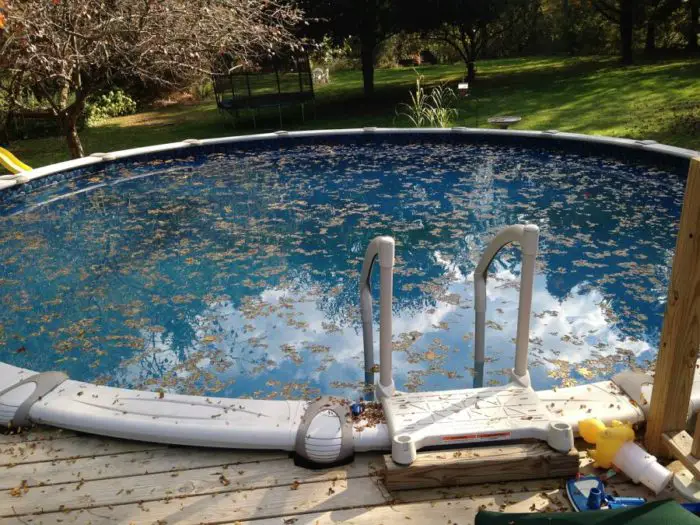Can We Boil the Pool Water and Drink It?
Swimming pools are a great source of entertainment, exercise, and relaxation. But the thought of drinking pool water is not something that most people would consider. Pool water contains chlorine and other chemicals that are essential for maintaining proper balance and cleanliness. But the question arises, can we boil the pool water and drink it? In this article, we will explore the safety and effectiveness of boiling pool water for human consumption.
Introduction
Swimming pools are designed to provide a comfortable environment for humans to enjoy. The pool’s water comprises several components, including chlorine, pH-balancing chemicals, stabilizers, and algaecides. These components help if we keep the pool clean and ensure that swimmers are safe from harmful bacteria, viruses, or algae. Despite this, it is not advisable to consume untreated pool water. There are several reasons why untreated pool water is not suitable for human consumption.
Brief on the Safety of Pool Water
Although swimming pools contain many chemicals, they are generally safe when used correctly. Every time before swimming in public recreational water settings (e.g., a public or community recreational facility), it ought to comply with guidelines issued by CDC namely “Model Aquatic Health Code”. However, the ingestion of untreated pool water can lead to severe infections caused by Cryptosporidium parvum bacteria and Legionella pneumophila bacterium. For this reason, most people do not consider drinking untreated pool water.
Why People Consider Boiling Pool Water
The thought of drinking boiled pool water may seem odd to some people. Still, there are situations where boiling pool water might be considered prudent. For instance:
- Camping – when natural sources of water are not available.
- In an emergency situation – when drinking water is not readily accessible
- Contamination – When natural water sources are contaminated or unavailable, boiling pool water may be one of the options.
However, it’s worth noting that boiling pool water might not be sufficient to make the water suitable for drinking. Let’s see why.
The Implications of Drinking Untreated Pool Water
Drinking untreated pool water can lead to severe infections caused by Cryptosporidium parvum bacteria and Legionella pneumophila bacterium.
Boiling Pool Water: The Process
The process of boiling pool water is relatively straightforward. Here is a step-by-step guide:
Step-by-Step Guide on How to Boil Pool Water
- Pour the pool water into a pot and cover the pot with a lid.
- Place the pot on high heat and bring it to a rolling boil.
- Let the water boil for ten (10) minutes while keeping it covered with a lid.
(The water should be clear at this point; if it isn’t, let the water continue boiling for another five (5) minutes.) - Cool the boiled pool water before drinking it. Cooling should be done at room temperature and not in the refrigerator.
Best Practices for Safety during Boiling Process:
- Ensure that the pot used for boiling is clean and does not contain any residue or dirt that could contaminate the boiled pool water.
- Use appropriate materials such as stainless steel pots due to their favorable thermal conductivity.
- Keep the lid on the pot during boiling to prevent any airborne contaminants from entering.
- Use clean utensils for serving.
The Effect of Boiling Pool Water on Chlorine Content
Swimming pool water contains several chemicals, including chlorine, which is essential for cleaning and maintaining the pool’s balance. But will boiling affect these chemicals?
A Closer Look at Swimming Pool Chemistry
The chemistry of swimming pools is complex. Understanding its principles can help you better understand how boiling pool water affects its contents.
Chlorine is used to disinfect and sanitize pool water by killing bacteria, viruses, and algae growth. Chlorine works by killing harmful microorganisms that come into contact with pool water. However, it is a sensitive compound that requires careful monitoring to maintain proper levels.
Can Boiling Remove Chlorine from Pool Water?
Boiling pool water can remove some of the chlorine present in the pool water. The extent of chlorine’s removal depends on factors such as the temperature of the boil and the duration of boiling. Let’s take a closer look at these factors:
Factors That Influence Chlorine Loss When Boiling
Temperature
The boiling temperature of pool water will influence the amount of chlorine lost from it. As the temperature increases, more chlorine will be removed while less will evaporate at lower temperatures.
Timeframe
Different durations of boiling can cause different levels of chlorine loss. Boiling for shorter durations like five minutes with high-temperature evaporation helps minimize chlorine loss while removing potential harmful contaminants.
Type of Container Used
The material of the container used for boiling pool water can affect chlorine loss. Stainless steel pots with a clean surface are easy to clean and maintain constant temperature and are optimal for chlorine-pool-boiling purposes.
Is Boiled Pool Water Safe to Drink?
Boiling removes some of the contaminants and pathogens present in pool water, but it does not remove chemical contaminants such as metals, salts, or nitrates. Also, boiling water might not be sufficient to kill all microorganisms that may be present in the pool water. For a more effective way to treat pool water for drinking purposes, point-of-use water filters could be used after boiling.
Other Ways to Purify Pool Water for Human Consumption
If you find yourself in a situation where drinking boiled pool water is your only option, it’s essential to make sure that it’s safe and purified. There are different ways to purify pool water:
- Point-of-Use Filters – These can help remove pollutants from the boiled pool water that boiling alone cannot cleanse sufficiently.
- Chemicals – Chlorine dioxide or iodine can also be used as effective water treatment methods.
Precautions to Be Taken When Drinking Boiled Pool Water
It’s essential to ensure the safety of your equipment (water bottles, glasses, cups) before using them to consume boiled pool water.
Disinfecting Your Own Equipment Before Use And Safe Handling of Potable Boiled Pool Water
- Clean and disinfect drinking containers before using them to drink.
- Only store boiled pool water in clean and sanitized containers with a tight-fitting lid.
- Refrigerate the boiled pool water for extended storage.
- Dispose of any boiled pool water that remains unused after two (2) days.
Conclusion
In summary, boiling pool water does not eliminate all contaminants and pathogens present in the pool water, making it not advisable to consume untreated pool water. Also, boiling pool water causes some chlorine containment loss leading to its ineffectiveness concerning sanitization purposes for swimming pools. However, if boiling pool water is your only option, it’s essential to follow best practices for safety during boiling process and use point-of-use filters if possible for a safe and purified drinking experience.
Is it safe to boil pool water and drink it?
Boiling pool water is not a safe method to make it suitable for drinking. The chemicals and contaminants present in the water do not get filtered out through boiling alone. It is highly recommended to use a proper filtration system or treat the water using chemicals specifically designed for drinking.
What are the risks associated with drinking boiled pool water?
Drinking boiled pool water may still contain harmful levels of chemicals and bacteria. These can cause illnesses such as skin irritation, respiratory problems, and gastrointestinal issues.
Can boiling pool water remove chlorine?
Boiling pool water is not an effective method to remove chlorine. Chlorine has a low boiling point, which means that it will vaporize before the water boils. Therefore, it is crucial to use treatments specifically designed for removing chlorine from the water before considering it safe to drink.
What is the best way to make pool water safe for drinking?
The best way to make pool water suitable for drinking is to use a high-quality filtration system or a treatment process that employs chemicals designed for drinking purposes. Filtration systems such as Reverse Osmosis (RO) or Ultraviolet (UV) can effectively remove contaminants and chemicals from the water, making it safe for consumption.







